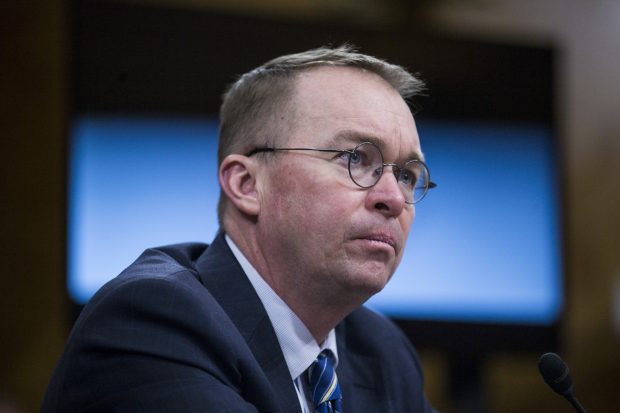
Most agency heads don't tell Congress that their agencies are far too powerful.
But then, there's Mick Mulvaney, acting director of the CFPB. He has said that he has no intention of dismantling the agency, although many of his moves may contradict that statement.
And in issuing the CFPB's semi-annual report to Congress, dated Fall 2017 but released Monday, Mulvaney, asks Congress to rein in his agency, which he contends was given far too much power in the Dodd-Frank Act.
“As has been evident since the enactment of the Dodd-Frank Act, the Bureau is far too powerful, and with precious little oversight of its activities,” he said, in the report.
He said that according to Dodd-Frank, the agency director is a “one-man” legislature who serves in three roles: he writes binding rules, serves as an executive and then as an appellate judge “presiding over the Bureau's in-house court-like adjudications.”
He said that the agency is “primed to ignore due process and abandon the rule of law in favor of bureaucratic fiat and administrative absolutism.”
As a Republican House member from South Carolina, Mulvaney was a vocal opponent of the CFPB. President Trump appointed Mulvaney, director of the Office of Management and Budget, as acting director after then-Director Richard Cordray resigned to run for governor.
And while Mulvaney said he had no intention of dismantling the agency, he has ordered a review of virtually all agency functions, while taking no enforcement actions during his time in office.
In the report, Mulvaney asks Congress to subject the agency to the annual appropriations process. The agency currently is funded through drawdowns from the Federal Reserve.
He also asked Congress to require congressional approval of agency rules and to ensure that the director is answerable to the president. The U.S. Court of Appeals for the District of Columbia, recently ruled that under Dodd-Frank, the agency's director can only be removed for cause.
And he asked Congress to create an independent inspector general for the bureau. The bureau currently shares an inspector general with the Federal Reserve.
In making the recommendations, Mulvaney acknowledged that some members of Congress disagree with his policies at the bureau, while others disagree with the policies of his predecessor, Richard Cordray.
“Such continued frustration with the Bureau's lack of accountability to any representative branch of government should be a warning sign that a lapse in democratic structure and republican principles has occurred,” he wrote. “This cycle will repeat ad infinitum unless Congress acts to make it accountable to the American people.”
Mulvaney critics have said that he is eliminating consumer safeguards that were put in place after the financial crisis.
The report notes several enforcement actions that remain pending in court; they were filed before Mulvaney took over the agency.
However, it also notes that in January, the bureau dismissed a complain against four online lenders–Golden Valley Lending, Silver Cloud Financial, Mountain Summit Financial and Majestic Lake Financial alleging they deceived consumers by collecting debt the consumers did. “Specifically, the Bureau alleged that the four lenders could not legally collect on these debts because the loans were void under state laws governing interest rate caps or the licensing of lenders,” the agency said.
The report simply states that the “bureau voluntarily dismissed the action without prejudice. “
© 2025 ALM Global, LLC, All Rights Reserved. Request academic re-use from www.copyright.com. All other uses, submit a request to [email protected]. For more information visit Asset & Logo Licensing.







